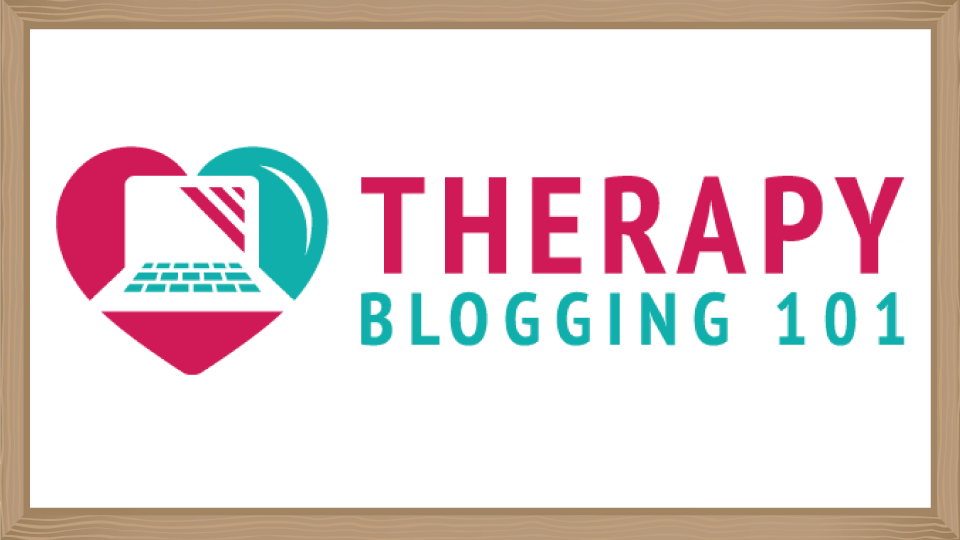
For physiotherapists in India, the career path often seems linear – graduate, find a job in a hospital or clinic, and continue on that trajectory. However, I know for certain that many of you are looking for alternative career options. Maybe because you want a better salary, better work life balance or professional growth. In this blog post, we’ll explore some alternative career options for physiotherapists in India, so that you can experience growth both professionally and financially.
The best part? You don’t need to get a separate degree to pursue many of the following alternative career options. Your physiotherapy education is more than enough! Let’s dive in.
1. Telerehab
Before the pandemic we barely knew about telerehab. It is however a well established field now. Telerehab simply means providing physiotherapy treatment virtually over a zoom call or video calling medium.
If you want to become a telerehab PT, you will need to learn about camera angles, how to conduct evaluations online and develop a knack of providing precise verbal cues. Yes, it is harder than it sounds but practice makes it perfect!
As telerehab became popular post pandemic, PTs started treating more and more conditions virtually. PTs now treat MSK, neuro, cardiorespiratory and women’s health conditions via telerehab.
Finally it is important to remember that certain patients will continue to need in person PT no matter how much telehealth evolves. (Think about patients with balance issues or those who need manual therapy). So you need to keep in mind the type of population you want to treat and consider if telerehab is the best mode of treatment or not.
Pros:
Opportunity for growth: Since Telerehab is an evolving field, you get to set foot early on. This way you have an advantage of having an early start. Which means you get plenty of opportunities for growth. The telerehab startups are emerging in India. As these startups grow into companies, you are likely to get opportunities to grow professionally and take on leadership roles.
Work from home setup: Telerehab means you can provide rehabilitation services from the comfort of your home. You get to save time and energy spent traveling and in traffic. Additionally you can make physiotherapy accessible to remote areas in India. Thus expanding your reach and impact you make.
Flexible hours: Many telerehab startups in India allow you to set up your own work schedule. This is a great option when you want to spend more time with your family. Some telerehab startups even offer part time work schedules.
Cons:
Starting pay: Starting pay at the telerehab startups is similar to what you get paid at the clinics in the beginning. However there is a potential for professional and financial growth as these startups grow and you take on more responsibilities or leadership roles.
Limited research: Since telerehab is still an emerging field so research on efficacy of telerehab is still limited. Some of the experienced physiotherapists still swear by traditional PT over telerehab.
Patient Safety Concerns: While you can treat a variety of conditions via telerehab, certain conditions will continue to need in person PT only. Especially geriatric clients or patients with balance issues. Apart from that MSK patients who need manual therapy won’t be a good fit as a telerehab client.
2. Consultant
Rehab innovation and tech companies also look for PTs to consult for product development. Here you can use your physiotherapy background and medical knowledge during the phases of product development.
By the way, you don’t have to limit yourself to rehab devices companies. You can look for roles in medical device companies, orthopedic device companies as well.
You can take roles in product management, UX/UI design and research, and Sales consultant.
Before you take these jobs though, you need to be crystal clear on the lifestyle you wish to have. Because some jobs involve traveling while some jobs offer work from home setup.
Pros:
Professional Growth: There is plenty of growth potential in these roles. When working you can expect structured career growth, appraisals and promotions.
Learning: You will be learning a lot of new things while using knowledge you learned in PT school. Learning new things can be exciting and will grow you professionally.
Better pay: You are likely to get better starting pay as compared to starting pay in clinics. As you take on more responsibility, pay will increase. You are also likely get regular appraisals and promotions based on your performance
Cons:
Additional certifications: You may need to take additional certifications or courses in product management/ UX and UI research depending on your role. Google offers some free certifications while you can get paid certifications through udemy/ coursera.
Away from patient care: These roles will definitely take you away from one on one patient care. So if you enjoy treating patients, this might not be an option for you.
Work environment: Expect to work for long hours at many of these companies. Managing work life balance can become a challenge if you are working late evenings almost everyday.
3. Health Coaching
As a Health Coach you will be educating and motivating your clients to reach their fitness goals. Health coaches are typically required to get on calls with clients and help them with their fitness journey.
Your job will be to ensure your clients are following the set protocol and hitting their fitness goals. As a PT, you will also be designing a fitness program tailored to their needs.
Almost all of the health coaching jobs are work from home. You can work for a company or start your own health coaching business.
Pros:
Work from home setup: If you want to avoid traveling in traffic and save that time and energy, health coaching is a great career path for you. You can work from the comfort of your home.
Job Satisfaction: You get to see your clients get results and reach their fitness goals which is totally rewarding. Helping somebody in their fitness journey by being a motivating factor definitely brings job satisfaction
Stability: Most of these jobs have reasonable work hours and rarely require you to work outside of those hours as long as you finish set number of client calls
Cons:
Pay: Pay varies and the starting package may not be as lucrative. However, the starting package can vary greatly based on your professional and educational background. You can expect to get appraisals and promotions on a regular basis based on your performance.
Degree: You may not leverage your PT degree or utilize it to full extent.
Burnout: Constantly being on a call with clients can lead to burnout. Many companies require you to work through a certain number of client calls per day and that can become exhausting if you spend too much time on each call.
4. Health writer
Physiotherapy product-based companies usually look for PT writers to write scientifically correct information in simple language. But don’t just stop there. You can use your ability to break down complex medical information into simple language to write for medical device companies or pharma companies.
Remember that becoming a blogger is different from being a health writer. When you are starting and growing your own blog, you are doing multiple other things such as marketing, monetizing, selling etc. Whereas as a health writer, the only task on your hand will be writing.
Yes, it is a fully remote job. But having a laptop and internet connection is not enough! Keep in mind you need to love writing and excel at it in order to succeed at this career path.
Pros:
Fully remote job: You can enjoy the perks of working from home when following this career path. Writing jobs also allow flexible hours so you don’t have to follow strict 9 to 5 schedule
Creative: If writing is your creative outlet then this may just be the career path for you.
Better pay: You can start content writing as a side hustle and grow into a full time career. Pay is good as you get established and play your cards right.
Cons:
Takes a while to get established: You need to have a writing portfolio in order to land a high paying writing gig. Typically you have to do a lot of free writing work or write at lower rates before you build your portfolio.
Difficult to transition: Continuing on the previous point, since it takes a bit to get established as a writer, it is difficult to jump into a writing career full time in the beginning. I recommend you start writing as a side hustle and grow from there.
Monotonous: Medical writing can feel extremely monotonous if writing is the only thing you are doing everyday! That is why many writers go on to start their own blog and figure out the ways to monetise it.
5. Academics
This is probably most stable alternative career options for physiotherapists. If you have a masters degree and a love for teaching, this may be the right career path for you. You truly get to shape the future generation of PTs when working as a professor.
Without prior experience, you are likely to start at the beginner post which is lecturer. There is no set age limit to apply for private colleges; however, if you want to be a professor in a government college, the age limit is 35 years.
If you are proficient in a niche area (Think: women’s health PT or Spine rehab), you can create your online courses and sell them to PTs online. Keep in mind though you need to build an audience to sell. And the only way to build an audience online is by providing value through blogs, youtube videos or podcasts.
Pros:
Stable job: Teaching as a college professor is one of the most stable jobs out there. Many find this career path appealing because of the stability it offers
Growth: This career path also offers structured career growth. You can expect to get salary hikes as you spend more years teaching and get promotions
Rewarding: It is extremely rewarding to shape the future generation of PTs. If you love teaching, you should consider a career in academics.
Cons
Public speaking: As a professor you will be speaking to a class of students. So you need to get good at public speaking. If speaking in front of a crowd makes you super uncomfortable, it might not be a role for you.
Work hours: As a professor you will be grading papers and preparing for lectures outside of your work hours. Although teaching jobs follow the traditional 9 to 5 pattern, you are likely to work outside of those hours as well, at least on some days.
Unsuccessful students: Every once in a while you may encounter a student who is not as successful as you want them to be. It could be because of the situations outside of your control. However seeing your students struggle can be difficult to watch regardless of the reasons
6. Insurance manager
This job involves you scrutinizing the insurance claims. You need to make a decision about insurance payoffs to the client based on their claim.
In this role you will be using your medical knowledge to determine the accuracy of claims. You will need to know insurance policies from your employer besides your clinical knowledge.
Some of these roles are remote while others require you to work in person. These roles require you to have some clinical experience.
Pros:
Career growth: These jobs offer structured career growth. You will get promoted and salary increments based on your performance.
Better pay: These jobs offer better starting salaries as compared to traditional clinical roles. You can also expect to get bonuses and salary increments as you grow.
Using your PT knowledge: You get to leverage your PT knowledge and experience to determine fraudulent claims. However you will also need to learn about company policies and protocols.
Cons:
Corporate hours: You will be working in corporate work setup so don’t expect standard 9 to 5 hours. You may expect to work on some weekends depending on the workload.
Preference to physicians: Many of these jobs prefer MBBS degree over other clinicians. You need to develop strong advocacy as a PT and explain why you can do the job just as well.
Boredom: Many find this job lacks creativity. Reading claims over and over again can feel repetitive and boring.
7. Online Entrepreneurship
If you enjoy creating content you can start your own blog/ youtube channel/ podcast and monetize as you grow. This is a fully remote job and you can choose to monetise creating digital products, affiliate marketing, building a membership and creating online courses.
You will be wearing multiple hats including writer, digital marketer, creator, editor to name a few. In the beginning you are likely to fly solo and will be juggling a lot of plates.
However, once you build an audience, establish authority in your niche and develop systems and processes around your business, you can enjoy the perks of being an entrepreneur.
Pros:
You are the boss: That means you get to make all the decisions. You get to decide your start time and stop time, how many days you work and what it is you work on. You don’t have to deal with office politics and pressure from management anymore
Passive income: Once you are established and have all the systems in place you can step away from the business for a little bit and still make money when you are not working. ( That said, your own business typically needs a lots of time and attention on your part)
Creative: Building your online presence is a creative venture. You can express yourself creatively while helping others.
Cons:
Needs self discipline: This is the downside of being your own boss. You need to be internally motivated to show up everyday. This is particularly hard in early phases when your only audience is your mom! a
Takes time to monetise: All online businesses take time and effort to grow. There is no get rich quick scheme. If somebody promises you that with an online business, it is a scam!
Difficult to transition: As I mentioned earlier, side hustle takes time to grow. That means it will be a while before you start making money from it. Hence, entrepreneurs usually start as a side hustle before diving in full time
I partnered with Meredith from The Nonclinical PT and Chanda from Pink Oatmeal to get you this PT Career Paths exclusive discount on their Therapy Blogging 101 course. This course is hands down the best course out there for blogging. Chanda and Meredith understand the unique needs of therapists and teach blogging while simplifying the technical terms.
In this course you will get:
- Comprehensive online video education course
- Strategic overview of effective website monetization
- Downloadable worksheets, templates, and reference material
- Search engine optimization (SEO) technique
- Comprehensive tech library and walkthroughs
- LIFETIME access to all the coursework
- And 2 bonus lessons about course creation and adapting to tech along with access to a private alumni group on Facebook!
When you enroll using my affiliate link, you will get a 15% discount!

8. Ergonomic consultant
As physiotherapists, we are experts in posture assessment and ergonomics. We can use this same knowledge to assist professionals to be pain free at work.
You can build your own business or work for a company. There are several companies in India that hire physiotherapists as ergonomic consultants for their corporate client
You will be conducting seminars in person or online to educate company employees about good posture and exercises they should be doing throughout the day. Some companies may invite PTs over to perform ergonomic workplace assessments.
Pros:
Work hours: Your work hours are usually predictable. Companies typically don’t keep seminars late in the evening. If you are flying solo, you can decide your own work hours.
You can get started right away: Your physiotherapy knowledge is more than enough. You will need to make a comprehensive presentation and then start reaching out to companies.
You get to stay clinical: You leverage your physiotherapy background. Also depending on your role you may not be completely moving away from patient care
Cons:
Competition with OTs: When working as an ergonomic consultant, PTs are not your only competition. Occupational therapists can also be competent enough to work as an ergonomic consultant.
Starting pay: Your starting pay is likely comparable to the starting salary of a clinical PT. However as you grow into an organization, you can expect to get increments
Public speaking: Depending on your role, you may be expected to give a presentation in front of a group of people regarding ergonomic safety and prevention. You will be expected not just to have public speaking skills but be good at it.
9. Management career
I kept this one in the end because you need a separate degree in most cases. Some of the post graduate degrees PTs can pursue are MBA, Masters in public health, Masters in health administration.
However if you are tight on budget, you can choose to pursue postgraduate diplomas. The main difference between post graduate diploma and masters degree is that diplomas are granted by independent institutes as opposed to masters courses.
Some of the post graduate diplomas you can pursue are PGD in Management, PGD in clinical research, PGD in education management and administration and PGD in sport management.
PGDs are usually of shorter duration. PGD candidates typically get lesser pay as opposed to Masters degree holders.
Pros:
Pay: Starting salary is typically higher as compared to clinical roles. You also get diverse amount of job titles to choose from
Career growth: Since you are likely to work at corporate you can expect to get regular promotions, appraisals and increments based on your performance
Bigger impact: You get to make an impact on a bigger scale as opposed to individual level as a clinical PT
Cons:
Separate degree: You need separate education. You may not use what you learned in PT school at all in your career.
Costs: MBA, MPH and MHA programs tend to have higher fees. Additionally all these programs are full time programs meaning you won’t be able to take up a full time job to bring in income.
Timings: Once you get a job, you are likely to follow a corporate lifestyle. Meaning you are likely to work long hours and maybe some weekends.
FAQs:
Are these options right for me?
There are literally so many alternative career options for physiotherapists in India, it is hard to tell which one is right for you. You can take a look at your long term goals, your personality traits, interests along with your background to decide which one is right for you. If you are planning on leaving physiotherapy profession, I highly recommend going over these options
Are these the only alternative career options for physiotherapists in India?
Definitely not. There are several other alternative career options for physiotherapists in India that are not explored here. These job titles include medical coding, research assistants, product managers, UX/UI designers and so much more
Are there remote alternative career options for physioS?
Yes, physiotherapists in India can work remotely if they choose some of the aforementioned career options. While some positions may be hybrid, meaning you may be required to be in office some days and work from home on other days.
How do I get started with these career options ?
I am so glad you asked. I conduct one on one consultations with physiotherapists in India to help them with their physiotherapy career.
We can discuss your unique background and interests. I can then help you figure out which alternative career options for physiotherapists that are right for you.

Hello, My name is Tejashree Limaye. I am a physiotherapist with 10+ years of experience. I help you go from being stuck in your career to finding a job you love! I provide career guidance about clinical and non clinical PT career in India. I also help you with US PT licensing process. Welcome to my blog, I hope you find the exact guidance you have been looking for!
